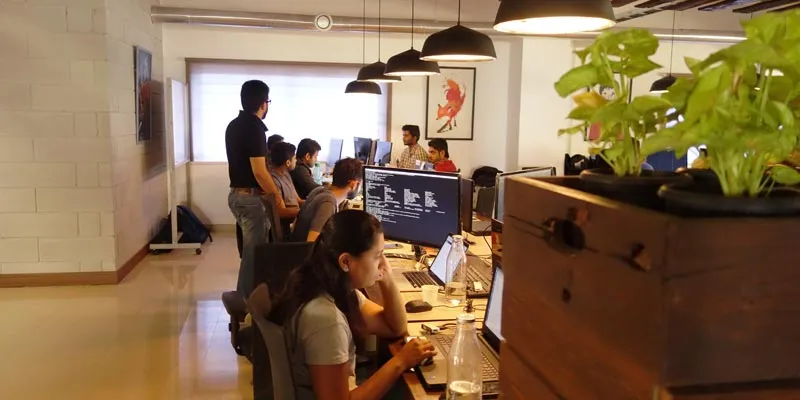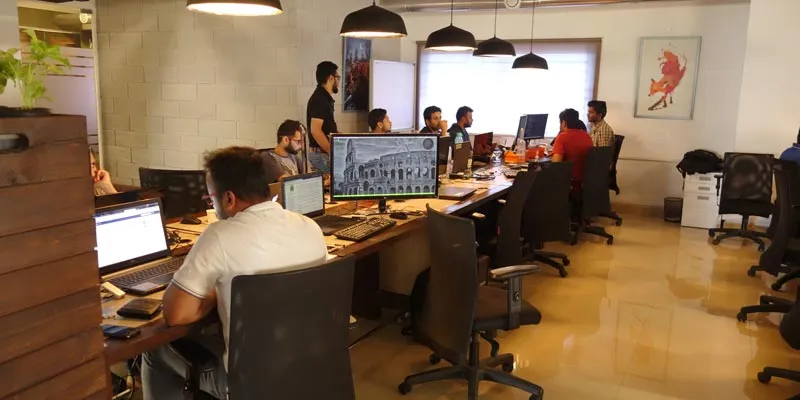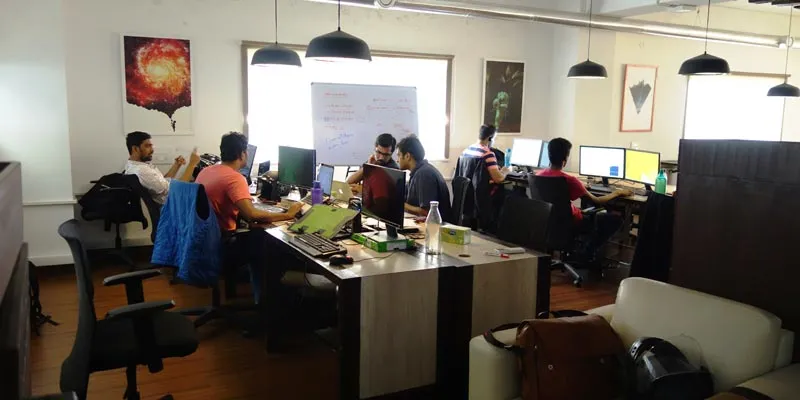Rainmatter — bootstrapped Zerodha’s entry into the fintech incubation space
“Everybody calls wallets and lending platforms ‘fintech’. But if you look internationally, if you look at fintech, it is more about investments and managing people’s money. Just some wallet play on an e-commerce site isn’t fintech,” says Nithin Kamath, Founder of Bengaluru-based Zerodha. Nithin, along with Kailash Nadh, has also started Rainmatter, a fintech startup incubator.

Apart from helping them with infrastructure, Rainmatter invests in these startups in exchange for equity, and even helps with strategic partnerships. The team has allocated close to Rs 35 crore to Rainmatter, and the risk they have on a startup is not more than $1 million.
The idea for Rainmatter came when the duo thought of what they could do to revolutionise the fintech space in India. Rainmatter works as an API platform, where any fintech startup can come and build a user experience of its choice. The idea is to help fintech startups truly disrupt user experience in the financial landscape.
Nithin feels India as an economy relies too much on foreign capital, which is why Rainmatter’s focus is on growing the market.
Making Indians invest
“There is so much domestic capital available in terms of gold and real estate, and if India has to become an economic superpower, all of that capital should be going into investing in businesses, not lying in fixed deposit boxes, gold and real estate,” says Nithin.
He adds that a big problem to solve is how to get millions of Indians to actually invest in the market. Zerodha is helping those who already want to invest in the market, but what about someone who wants to invest and doesn’t know how?
“We don’t have that solution at Zerodha. We have learning and training modules, but if you want to come and invest and don’t know how, which is close to 200 to 300 million, there is nothing. This is why we want to talk to a host of startups and see if we can do something there,” says Nithin.
While the current focus of Rainmatter is fintech, with time, they are open to other startups as well. Kailash says currently fintech makes the most sense to them as they have already built a successful business around the space and can provide great access.

How does Rainmatter help?
He adds that if there is a startup that looks at market investments, they can easily get the help needed to build an execution platform overnight.
With Rainmatter, they handle all the hard bits that others cannot handle, which includes exchanging cloud data centres, and leasing lines from stock exchanges and servers. “It isn’t easy for a startup to create all of that. It takes months for a startup get a lease line from stock exchanges,” explains Kailash.
As the team has already built the base of a vendor infrastructure base, the startups can use that with ease and build over it. Zerodha became profitable as a business in the first year of starting up, and the team is still bootstrapped.
Last year, Zerodha claims to have made over 100 crores of revenue, and the duo says that the technology and infrastructure details for building the platform and setting the infrastructure are taken care of with ease.
Rainmatter has some startups that don’t need the existing infrastructure. Citing an example, Nithin says if there is a startup building execution infrastructure systems, they don’t need the Zerodha base. However, with Rainmatter, they get strategic and market insight.
Kailash adds that while they are open to the broad base of fintech startups, they are partial towards market investing or brokerage startups, as it makes the most strategic sense to them.
“We are hoping to see some ground-breaking innovation in fintech startups using our framework,” says Kailash.

The world of fintech
According to YourStory Research, over 47 deals amounting to $954 million were made in the fintech space last year. Within just the first half of this year, there have already been 46 deals amounting to $285 million made in the space.
Venture capital investors seem to be in full agreement. “Financial services and the fintech market are as big as the e-commerce market. The sector is almost like a parallel economy,” believes Mridul Arora, Principal, SAIF Partners.
This year seems to be the year of fintech, with banks like HDFC, SBI, and Citibank starting their own fintech-specific incubators and accelerators. The space is just picking up; how the investments pan out remains to be seen.
However, accelerators in India are growing. A number of global corporates like Target, Microsoft, Citrix, and SAP have set up their own incubation centres to build connects with new-age Indian startups.
Apart from these, independent incubators and accelerators have also mushroomed, with some working with the government or academic institutions.
For startups, accelerators help remove entry barriers, and provide relatively easy access to capital and mentorship.
However, in an earlier YourStory article, Vani Kola, Managing Director, Kalaari Capital, said, “Startups today do have a high failure rate. There will be a lot of money invested that perhaps will not give 100 percent success. The question is whether there were sufficient companies of size and scope that did create significant value.”
One of the startups that has been part of Rainmatter since October last year is smallcase. Operational since July last year, smallcase helps you invest in ideas an individual understands instead of picking single stocks and mutual funds that one doesn’t have a clue about.
Currently in a private beta, each smallcase is a thematic portfolio of stocks that is based on everyday ideas like GST, monsoons, budget 2016, and a smart city project that you relate to. “Since smallcase help you take a portfolio approach, it's a simpler, safer, and more diversified approach to investing in stocks,” says Vasanth Kamath, Co-founder of smallcase.

Rainmatter, Vasanth says, was exactly the kind of support system they were looking for. The team has a lot of experience in the same industry and is receptive and responsive to new ideas. Also, with Rainmatter, they are able to get a relevant user base and behavioural data to test their hypotheses.
“We are the best people to know of our business and the real reason for raising funds happens when you have to market and advertise. We don’t do that because the size of people looking at investing in markets is small. So funding doesn’t help much,” says Nithin.







